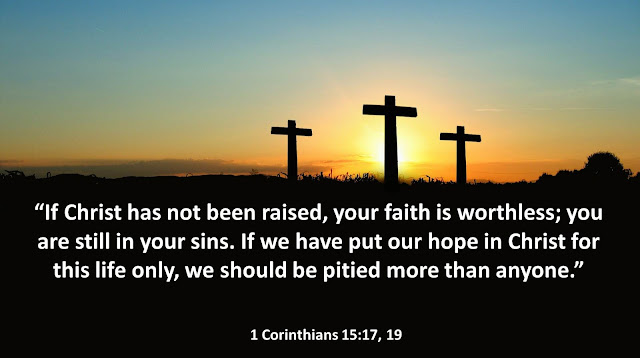Introduction
With all of the recent news of various social media platforms purposefully hiding and censoring Christian and politically conservative content in the name of "diversity" and "tolerance," many people have abandoned Facebook, Twitter, Pinterest and other popular social media outlets in protest. While I have been tempted to do the same, because of their relative popularity (compared to more traditional communication media), I do believe that if we abandon these platforms, we will not only limit our audience but encourage the behavior of limiting reasonable content to and stifling intellectual discussion among the users of these platforms. The new generation of consumers prefers social media for their news, media consumption and discussion of various issues, so it cannot be abandoned by those who hold and can defend the truth with gentleness and respect.The Liberal View of "Tolerance" and "Diversity"
I recently heard Candace Owens interview Lauren Chen about the modern liberal view of "tolerance" and "diversity." They discuss the deliberate attempt to remove even the slightest (appearance of) disagreement from the public square. This attempted removal is targeting the internet and specifically social media. If you are considering leaving popular social media platforms (or already have), I encourage you to listen to this discussion in full and consider that removing your voice of reason from today's public squares may do more harm than good:Christians Should Master The Media
The new culture primarily consumes image-driven messages, and social media is the primary avenue to get images before this audience. In his book "Cold Case Christianity: A Homicide Detective Investigates The Claims of the Gospels," J. Warner Wallace encourages Christians to not just embrace new media but to master them. Christians must master the content itself, the presentation of the content, and the delivery mechanisms for the content.Conclusion
Rather than abandoning popular social media channels, we should embrace them and utilize them to their fullest potential! If a challenge arises that limits our reach, it is not to be met with surrender, but with enthusiasm to reach the goal despite the challenges. I have written several posts and reviewed several books on the importance of discussing political and moral issues in a compassionate yet intellectual manner. I encourage you to read the posts and purchase the recommended books to equip you to "always be prepared to give a reason for the hope that you have...with gentleness and respect" (1 Peter 3:15):- 8 Tips to Discuss Politics, Race, Religion, and Other Controversial Topics
- How Should Christians Vote In Political Elections?
- Would Jesus Participate in Politics?
- What Is The Intellectual Cost Of The Pro-Choice Position?
- SCOTUS' Decision on Gay Marriage: A Philosophical Critique
Quotes:
- 25 Quotes on Tolerance
- 52 Quotes On The Crisis of Truth In Today's Culture
- Norm Geisler and Frank Turek: Legislating Tolerance
- Gentleness and Respect In Debate and Discussion
- Legislating Morality: Is It Wise, Is It Legal, Is It Possible
- Time For Truth: Living Free In A World of Lies, Hype, and Spin
- Before You Hit SEND
- The Beauty of Intolerance: Freeing A Generation To Know Truth and Love
- The Case for Life
- Forensic Faith: A Homicide Detective Makes A Case For A More Reasonable Evidence Christian Faith
- Top 5 Recommended Books on Ethics and Politics
- Top 5 Recommended Books on Having Productive Conversations


![Quote from J. Warner Wallace from the book "Cold Case Christianity": "In a culture where image is more important than information, style more important than substance it is not enough to possess the truth. [Christian] case makers must also master the media." Quote from J. Warner Wallace from the book "Cold Case Christianity": "In a culture where image is more important than information, style more important than substance it is not enough to possess the truth. [Christian] case makers must also master the media."](https://blogger.googleusercontent.com/img/b/R29vZ2xl/AVvXsEgjzd-AVrSD639EhMmzxkuF0Bnljb5HsU8EWUMxinozxX8bH24FyQLgLy-zoOIdrbNroHsxUB7vC6hCq-vrGBScsrOGBo6BrVP-b4kmjQyzP0oIxprR-9KJ17qB4ESr-AwcC7ZZz7cMbPk/s640/Slide7.JPG)


![Quote from "Come Let Us Reason" by Norman Geisler: "[Special pleading] is [a] way to make certain the opposing view doesn't get a fair shake. Here only the evidence that supports one view is cited, and the rest is left out...If there are ten studies that show your view to be false, ignore them and make a big point about the one that confirms your conclusion. Really, this argument counts on the listener to be ignorant of the facts. That way anything can be claimed, and no objection can be raised. However, if someone knows about the other ten studies, you're in trouble. This kind of argument can be torn apart easily if all the facts are made known." #Logic #Fallacy #SpecialPleading #Philosophy #Reason Quote from "Come Let Us Reason" by Norman Geisler: "[Special pleading] is [a] way to make certain the opposing view doesn't get a fair shake. Here only the evidence that supports one view is cited, and the rest is left out...If there are ten studies that show your view to be false, ignore them and make a big point about the one that confirms your conclusion. Really, this argument counts on the listener to be ignorant of the facts. That way anything can be claimed, and no objection can be raised. However, if someone knows about the other ten studies, you're in trouble. This kind of argument can be torn apart easily if all the facts are made known." #Logic #Fallacy #SpecialPleading #Philosophy #Reason](https://blogger.googleusercontent.com/img/b/R29vZ2xl/AVvXsEjqjNyDPE3Q3H2-32IpuOxEDs2UTMMc-AMqNDZtwENCjZ4nojFWFPf0X4L-yZmnT5JTNggeJIXpb_HjvOhNe_tDgJ6z8TMAy2-zzSjy1rSxD82jsPpQYCCjvt2m2_soE5jLvCFfVM2nVOQ/s640/Slide13.JPG)



